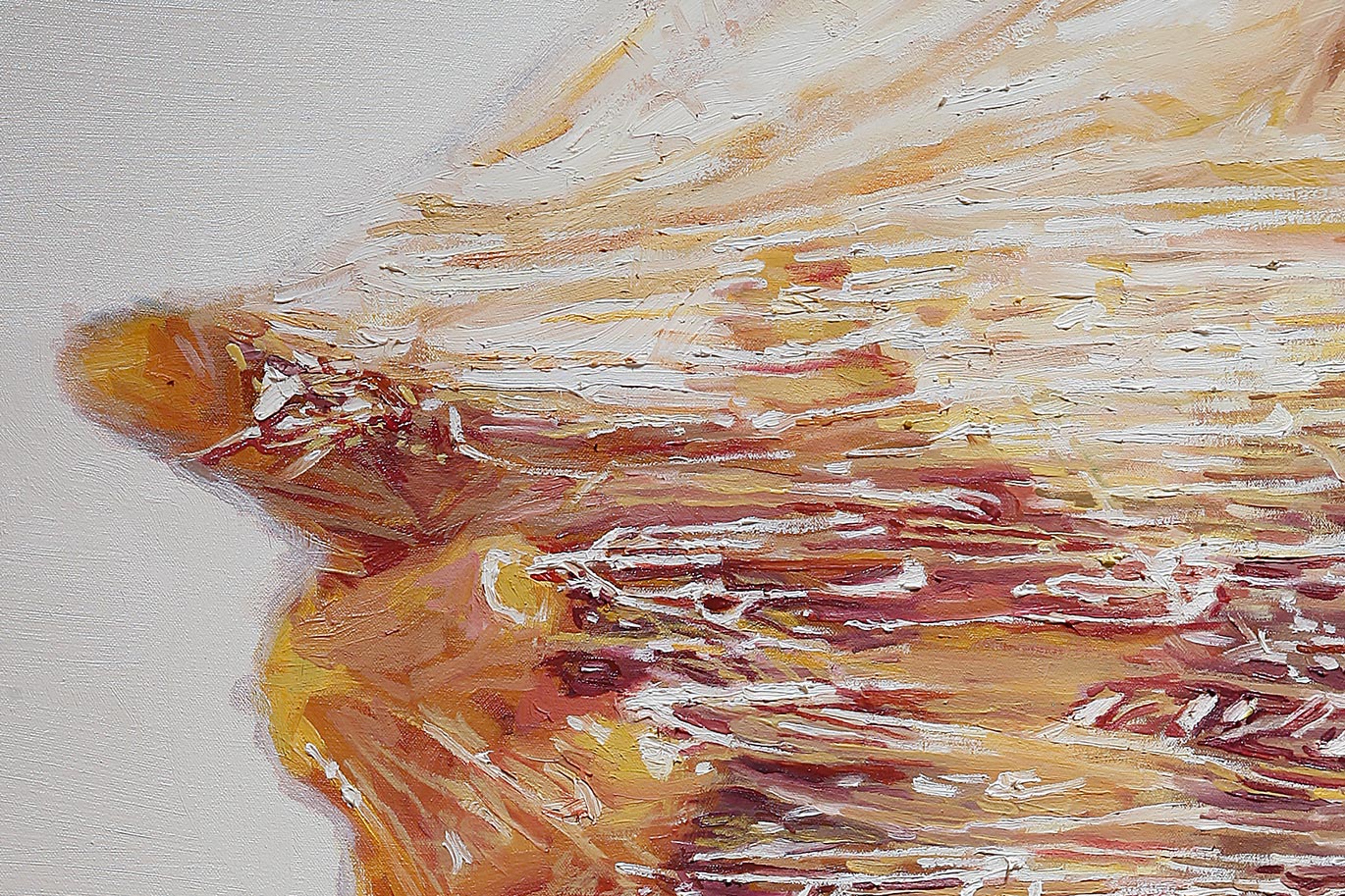- Spring 2023
Syllabus Description:
AH 273 Photo History Theory Syllabus Spring 2023.docx
Art History 273
History and Theory of Photography
Instructor: Kolya Rice
Office: Art 302
E-mail: krice@uw.edu
Teaching Assistants:
Giordano Conticelli: conticg@uw.edu
Lin -- Zagorski
Kris Kryscynski: kgkry@uw.edu
Almaraz -- Li
Office hours though Zoom by appointment
Course Description:
Is it possible today to imagine a world without photography? Photographs inform and impact so many aspects of our lives, we know—but how, specifically? This course is a survey of photography from its beginnings in the early 19th century to the digital imaging of today. Online video lectures, course readings and discussion forums will address photography’s multiple histories and theorizations: as an artistic medium, as a social text, as a technological adventure, and as a cultural practice. Key photographers, cultural movements and recurring themes will be explored with close attention to the social and cultural contexts in which photographs were produced, circulated and consumed. Further, we will explore critical approaches to, and complex theories concerning the operations and impact of photography, emphasizing a consideration of how photographic media impacts each of us, today.
Participants will work through sequences of materials and assignments organized in weekly “modules” on Canvas according to their own individual schedules with a great degree of flexibility. In the few cases where there is a fixed time that students will need to adhere to, multiple time slots will be offered so that everyone will be able to participate as fits their schedule. Course content will be delivered through a series of Panopto video lectures and coordinated readings. Online discussion forums, reflective papers on readings, online quizzes and assignments have been designed to engage students with course topics, foster creative and critical thinking, allow dialogue concerning the stakes involved in visual representations, and allow instructor assessment and evaluation of participants’ progress.
“W” Credit Component:
This course has been designated as a “W” or writing intensive course; this is not optional. As such, you may expect a substantial amount of writing assignments, writing tutorials, and feedback on your writing over the course of the quarter. An important method to improve writing proficiency is through revision in response to feedback. You are required to revise two writing assignments this quarter. (You must complete both the initial assignment and the revision to receive credit for this course.) The writing assignments you are required to revise are:
- Formal Essay #1
- Formal Essay #2
Required Readings:
1. Robert Hirsch, Seizing the Light: A Social History of Photography, 3rd edition (2017)
Purchase or Rent your Text Online
2. Electronic reserve (ER) readings of special topics articles on Canvas.
Student Responsibilities:
2 Formal Essays and revisions: (30% of overall grade)
Each “Formal Essay” will require students to write longer essays (5-8 pages) on topics covered in the Panopto lectures and course readings. These essays are more formal and directed than the Summary/Reflective essays, requiring students to both summarize and synthesize course materials, and to cite sources. You will be required to revise the first two Formal Essays in response to feedback. You will find a detailed prompt, video introduction to the assignment and various writing tutorials on Canvas in the module associated with each essay. These Formal Essays will be graded on a 100-point scale. See the prompts on Canvas.
2 Quizzes: (25% of overall grade)
Each quiz will require students to define terms, to write short answers on topics covered in the Panopto lectures and readings. These are open notes quizzes—you may return to the lectures and readings when composing your answers. Each quiz will only cover the topics for that 5-week section of the course. In other words, they are not comprehensive. You will have a full week to complete each quiz. These quizzes will be graded on a 10-point scale.
3 Summary/Reflective Essays (20%)
To ensure that participants have on strong comprehension of key ideas from course readings and lectures, and to allow me to offer feedback, students will be required to write at least 3 Summary/Reflective Essays over the course of the quarter. Specific prompts for each weekly summary/reflective essay can be found on Canvas. These essays will be graded on a 10-point scale.
Participation in weekly Discussion Forums (25%)
The topics of this course lend themselves to rich discussion and manifold perspectives. Candidly, this is often difficult to achieve in an online course. My hope is that you will engage with each other, respectfully and thoughtfully in the weekly online discussion forums. Each week I will provide you with specific topics, ideas and issues raised in the lectures and reading. Each student will be required to make one post in the discussion forum before the end of the day on Wednesdays. Once you have posted, you will be able to see others students’ posts. You are required to respond to at least one of these posts from another student by the end of the day on Fridays. You are welcome and encouraged to post/respond as many times as you desire. Your posts/responses will be graded on a 10-point scale.
Late papers and discussion post policy:
Papers will be marked down 10% for each day they are late and will not be accepted more than five days following the due date. Discussion posts will be marked down 20% for each day they are late and will not be accepted if more than three days late. If you have a serious conflict or emergency, please talk to me about it in advance of the due date and I will work with you.
VeriCite anti-plagairism software:
Notice: The University has a license agreement with VeriCite, an educational tool that helps prevent or identify plagiarism from Internet resources and work submitted by previous students of this course. I will use the service in this class; all assignments and quizzes you submit will be checked by VeriCite. The VeriCite Report will indicate the amount of original text in your work and whether all material that you quoted, paraphrased, summarized, or used from another source is appropriately referenced. All instances of intentional plagiarism will result in zero credit on the assignment, and a report of indicating academic dishonesty to the School of Art and the University of Washington. For further information, visit: https://itconnect.uw.edu/learn/tools/canvas/canvas-help-for-instructors/assignments-grading/vericite/plagiarism-faqs/
Summary of Due Dates for Writing Assignments and Quizzes:
Wk 1 3/31 Optional Summary/Reflective Essay
Wk 2 4/7 Summary/Reflective Essay #1
Wk 4 4/23 Formal Essay #1
Wk 5 4/28 Summary/Reflective Essay #2
Wk 6 5/7 Quiz #1
Wk 7 5/12 Optional Summary/Reflective Essay
5/14 Formal Essay #2
Wk 8 5/19 Formal Essay #1 Revision due
Wk 9 5/26 Summary/Reflective Essay #3
Wk 10 6/2 Formal Essay #2 Revision due
6/4 Quiz #2
Course Outline and Schedule:
(Specific prompts for the assignments listed below will be found on Canvas in the weekly modules.)
Week 1: Introduction: Setting the stage
Module 1: Introduction to the course: overview
Assignments:
1. Panopto video lecture
2. Discussion Forum—write a brief personal bio and post a picture that represents you. See prompt on Canvas.
Module 2: Context and Historical Backdrop: The Invention of Photography
Assignments:
1. Panopto lecture
2. Optional Summary/Reflective essay
Readings:
Text: Chapters 1-3
•Talbot, “A Brief Historical Sketch of the Invention of the Art”
•Kriebel, “Theories of Photography: A Short History” note: we will read sections of this essay over the course of the quarter (the text is subdivided into 4 sections): focus on section 1, pp. 3-15
•Optional: Krauss, “Photography’s Discursive Spaces”
Week 2: Early Photography—Finding a Place
Module 3: Early Photography: Technological Evolution, Differing Looks and Uses—and Critical Positions
Assignments:
1. Panopto video lecture
2. Discussion Forum
Readings:
Text: Chapter 4
•Baudelaire, “The Salon of 1859”
•Holmes, “The Stereoscope and the Stereograph”
Module 4: Photography and Art: Pictorialism and Traditions of Painting
Assignments:
1. Panopto video lecture
2. Summary/Reflective essay #1
Readings:
Text: Chapters 6, 9
•Robinson, an excerpt from “Pictorial Effect in Photography”
•Emerson, “Hints on Art”
•Optional: Rejlander, an excerpt from “An Apology for Art-Photography”
Week 3: Modernist Art or Social “Document”? Photography in the 19th-early 20th C
Module 5: Photography and 19th -early 20th C “Documentation”—From the Civil War to the American Landscape
Assignments:
1. Panopto video lecture
2. Discussion Forum
Readings:
Text: Chapters 5, 7
•Solomon-Godeau, “Who Is Speaking Thus? Some Questions about Documentary
Photography”
•Optional: Nesbit, “Photography and History: Eugene Atget”
Module 6: 20th C Art Photography: from Pictorialism to Modernism
Assignments:
1. Panopto video lecture
Readings:
Text: Chapters 9 (review), 11
•Weston, excerpts from “Daybooks 1923-30”
•Szarkowski, “Introduction” from The Photographer’s Eye
•Optional: Swarkowski, “Photography and America”
Week 4: Formal Essay #1
Module 7
Assignments:
1. Optional Discussion Forum
2. Formal Essay #1 Initial Draft
Week 5: Photography as an Instrument for Social Change: 1900-1950
Module 8 Photography as an Instrument for Social Change: 1900-1950
Assignments:
1. Panopto video lecture
2. Discussion Forum
3. Summary/Reflective essay #2
Readings:
Text: Chapter 12
•Hine, “Social Photography”
•Rosler, “In, around, and Afterthoughts (on Documentary
Photography)”
Week 6: Photography and the Historical Avant-Garde
Module 9 Photography and the Historical Avant-Garde
Assignments:
1. Panopto video lecture
2. Optional Discussion Forum
3. Quiz #1
Readings:
Text: Chapters 8, 10, (review) 11
• Breton, “First Manifesto of Surrealism”
• Optional: Marinetti, “Futurist Manifesto”
Week 7: Mid-Century Currents: from Street Photography to Pop
Module 10: Mid-Century Currents: from Street Photography to Pop
Assignments:
1. Panopto video lecture
2. Discussion Forum
3. Optional Summary/Reflective essay
4. Formal Essay #2 Initial Draft
Readings:
Text: Chapters 15, 16
•Kerouac, “Introduction” to The Americans
• Kriebel, “Theories of Photography: A Short History” focus on sections 2-3, pp. 15-38
• Optional: Foster, “Death in America”
•Optional: Coleman, “The Directorial Mode: Towards a Definition”
Week 8: Photography, “Conceptual Art,” and Identity Politics
Module 11: Photography and “Conceptual Art”
Assignments:
1. Panopto video lecture
Readings:
Text: Chapter 18
Module 12: Photography and the Politics of Identity
Assignments:
1. Panopto video lecture
2. Formal Essay #1 Revised Draft
Readings:
Text: Chapter 19
•Williamson, “Images of ‘Woman’”
•Optional: Meyer, “Barring Desire: Robert Mapplethorpe and the Discipline of Photography”
•Optional: Mulvey, “Visual Pleasure and Narrative Cinema”
Week 9: Some Aspects of Contemporary Photography (Part 1)
Module 13: Some Aspects of Contemporary Photography (Part 1)
Assignments:
1. Panopto video lecture
2. Discussion Forum
3. Summary/Reflective Essay #3
Readings:
Text: Chapter 20
•Kriebel, “Theories of Photography: A Short History” focus on section 4, pp. 38-43
•Galassi, “Gursky’s World”
•Optional: Plummer, “String, Space and Surface in the Photographs of Vik Muniz”
Week 10: Some Aspects of Contemporary Photography (Part 2) and Quiz 3
Module 14: Some Aspects of Contemporary Photography (Part 2)
Assignments:
1. Panopto video lecture
2. Formal Essay #2 Revised Draft
3. Optional Discussion Forum
4. Quiz #2
Readings:
Text: (Review) Chapter 20
•Batchen, “Post Photography”
•Optional: Steyerl, “In Defense of the Poor Image”



